It’s been nothing but bad news for Christian bigots. First the ARIS poll shows that the percentage of self-identified Christians has dropped by 10% — oh my lack of god! from 86% to 76%! It can only mean one thing: the end of Christian America! Which is funny, because that’s the title of the Newsweek article.
Turning the report over in his mind, Mohler [president of the Southern Baptist Theological Seminary] posted a despairing online column on the eve of Holy Week lamenting the decline—and, by implication, the imminent fall—of an America shaped and suffused by Christianity. “A remarkable culture-shift has taken place around us,” Mohler wrote. “The most basic contours of American culture have been radically altered. The so-called Judeo-Christian consensus of the last millennium has given way to a post-modern, post-Christian, post-Western cultural crisis which threatens the very heart of our culture.”
I hope I’m around when they get down to 50.
But that’s not all. It’s been an amazing week for marriage equality in America. Iowa allowed gay marriage, then Vermont, and finally D.C. has decided to accept the marriages of same-sex couples from out of state. I think the religious haters are used to thinking of the world as a cesspool of evil, and they love to imagine that (like Abraham in Sodom) they’re the only reason god is forestalling judgment on the nations. But I don’t think they’re used to seeing setbacks like this.
And predictably, they’re freaking. Never mind the laughable NOM ad. There’s a lot more crazy out there. Try this article on for size:
‘Gay marriage’ in Iowa more damaging than a 500-year flood
…
Flood waters erode the soil. “Gay marriage” erodes the soul. A flood impacts for a decade. “Same-sex marriage” destroys generations. A flood draws a community together. “Homosexual marriage” tears the family apart. Communities recover from floods. The promotion of un-natural unions has an eternal consequence.
As always, vague on details. How does homosexual marriage tear anyone’s family apart? How does it destroy generations? Aren’t you worried of running out of scare quotes?
As a native Iowan and as a pastor, I cannot remain silent. In light of this, I would exhort the church in Iowa to do three things:
— First, we must honor biblical marriage in the church and in the home.
Hawt! Polygamy and concubines! Oh wait, that’s Old Testament. What about New Testament marriage? Hmm. Paul says don’t bother. Hmm. The bible doesn’t sound too traditional to me.
But the prize for delusional pattern matching goes to Morality in Media President Bob Peters in his essay ‘Connecting the Dots: The Link Between Gay Marriage and Mass Murders’. He argues that mass murders are caused by things he’s afraid of: black people (and their rap music), sexual liberation, and gay people.
The underlying problem is that increasingly we live in a ‘post-Christian’ society, where Judeo-Christian faith and values have less and less influence. Among other things, Judaism and Christianity taught that murder was wrong and that included murder motivated by anger, hatred and revenge. Both religions also taught that we are to love our neighbor as ourselves and to forgive others.
People God kills in the Bible: 2.3 million plus.
“For many citizens, what has replaced Judeo-Christian faith and values is the secular value system that is reflected in films, rap/music lyrics, and videogames and on TV and now the Internet, where the taking of human life for just about any reason is commonplace and is often portrayed in an appealing manner and in realistic detail. Murder motivated by hatred and revenge is also justified.
Yeah, I was just getting ready to watch some murder on the Internet.
“This secular value system is also reflected in the ‘sexual revolution,’ which is the driving force behind the push for ‘gay marriage;’ and the Iowa Supreme Court decision is another indication that despite all the damage this revolution has caused to children, adults, family life and society (think abortion, divorce, pornography, rape, sexual abuse of children, sexually transmitted diseases, trafficking in women and children, unwed teen mothers and more), it continues to advance relentlessly.
Yep, an unbroken line straight from gay marriage to mass murder.
People see what they want to see, of course, but religious people are especially skilled at it. The defense of their illusory worldview depends on being able to see illusory patterns, and they must defend the worldview because without it nothing makes sense to them. And it’s even worse than usual because, like I say, the latest setbacks on gay marriage has hit these believers especially hard, leaving them without a feeling of control. There’s a pretty interesting psychological study on the effects of lack of control here. From the abstract:
Participants who lacked control were more likely to perceive a variety of illusory patterns, including seeing images in noise, forming illusory correlations in stock market information, perceiving conspiracies, and developing superstitions.
It’s making them even more delusional than even they would otherwise be.
I hope the next state to allow gay marriage does it within the next month or so. The bigots will be so rattled, you’ll be able to hear them coming down the street.
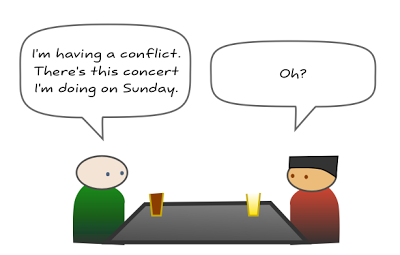

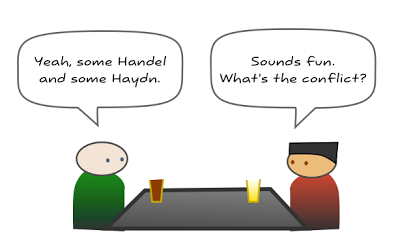
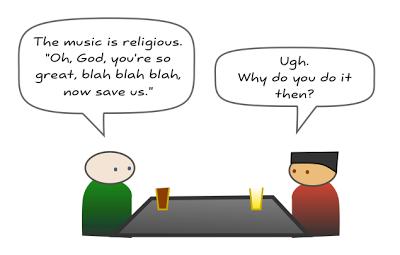
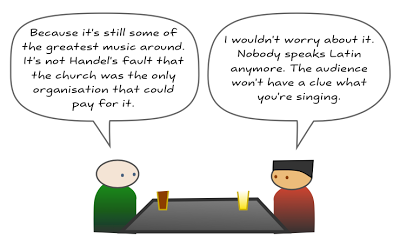
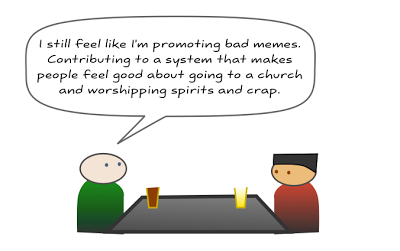


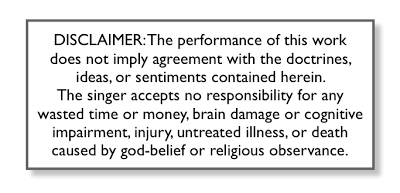


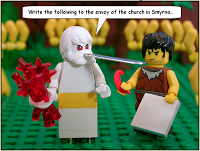



Recent Comments